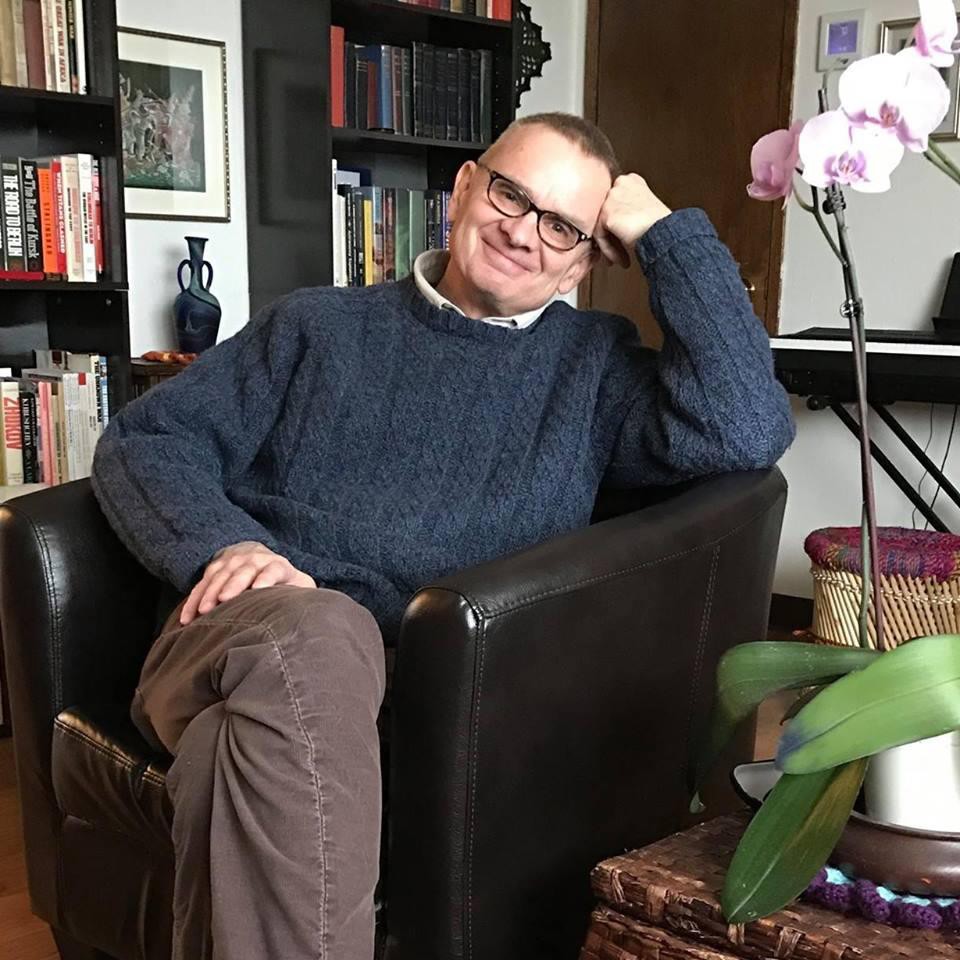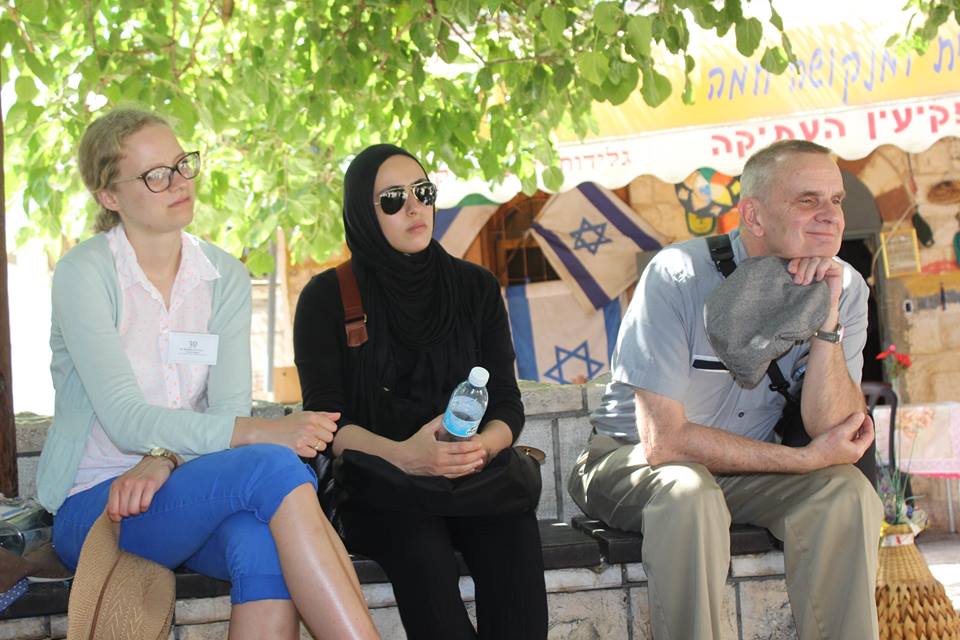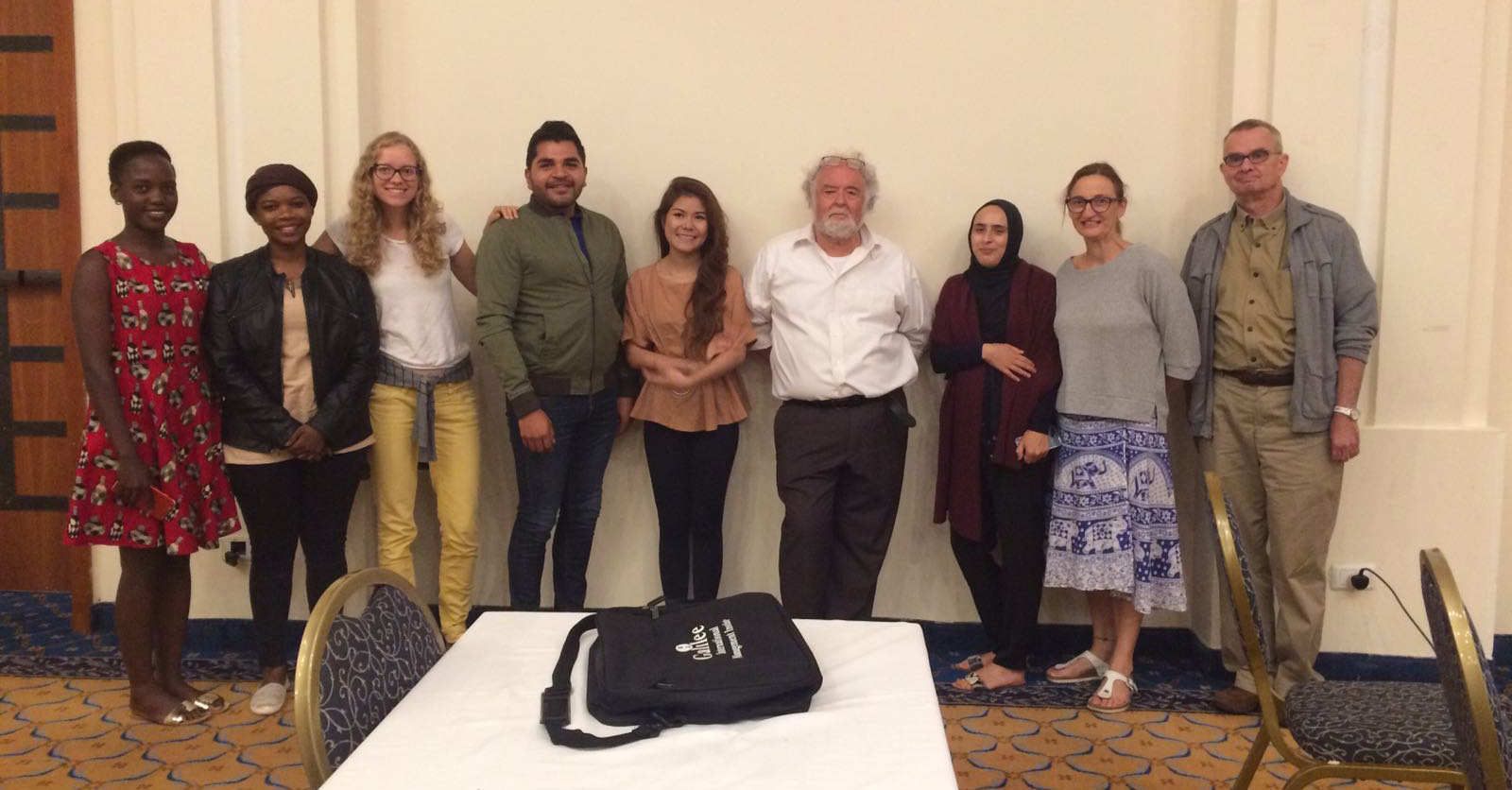Shared Existence in Israel- Can it Happen?
Is shared existence in the land of Israel/Palestine an impossible dream or an achievable reality? Graduate of our summer programme, Professor Michael Myers of the School of Politics, Philosophy and Public Affairs at Washington State University, suggests that it is possible. “The religious views that attach themselves to the land have within their traditions the resources to make room for each other and coexist,” he says. He is currently writing a book that will address this very question. The manuscript is entitled “Israel, Palestine and Religion."
In the context of his research and teaching on religious diversity, Myers came in contact with perspectives on the Israeli-Palestinian conflict and the establishment of the Jewish State. It became clear to him that the information presented on the subject tends to favor one group or another. “It struck me that given the deep

divisions of opinion regarding the land, it would be useful to give myself over to a sustained study of the issues, and share my findings with scholars and the public,” he says. “I have noticed a lack of ‘sympathetic juxtaposition of views,’ shall we say, in representation of the opposing sides. I could begin by filling that lack and sharing arguments from the best sources.”
Myers believes that the book could elicit an international response and hopes to reach readers who are open to the concept of shared society through increased mutual understanding. “The argument does not require a reader to be religious or nonreligious, but rather simply relies on the reader’s willingness to understand the role of religion in the conflict,” he explains.
“Galilee International Management Institute's summer programme on The Israeli-Palestinian Conflict: Exploring Both Sides has been hugely helpful in advancing my research,” he says, “Returning home and reviewing my notes, I realized how much I had learned, and how many new avenues were opening up to my thinking.”
We have asked him to tell us more about what he is writing about.

How will the book relate the view that the religions inhabiting this land can make room for each other in a shared existence? What are the challenges?
An untapped body of evidence can be amassed in terms of historical practices of tolerance, contemporary forms of cooperation, and especially perennial rules of hospitality and treatment of others found in Jewish, Muslim and Christian law. Many of these elements have been discussed separately, but I wish to put them together and form a connected argument.
A major challenge of the project is to relate the relevant religious laws to the concepts of ‘Land of Israel’ and ‘Holy Land.’ Another is to find moral criteria that truly represent the religions and are at the same time persuasive enough to gain wide acceptance across religious, political and cultural boundaries.
I hope to guide readers through critical interpretations of religious texts and traditions in order to locate shared values and find clues for moving forward. Intractable problems may become more plastic and amenable when their religious underpinnings are made open to inspection. I began writing about many of the subjects before attending GIMI’s summer programme, but the chapters now need revision and further attention.
Do you think that radical Islam is connected to the conflict?
The question is useful because it motivates one to study more closely the forms of Islam that international groups like Daesh and al-Qaeda take, as well as regional groups like Hamas and Hezbollah. If radical Islam is taken to mean forms of Islam that seek to control all aspects of people’s lives, and that such control should be extended over the whole of the globe, then yes, it is connected. It is connected through the influence of these forms of Islam on geopolitics, and more particularly through those regional neighbors that are intolerant of Israel’s Jewishness.
The way I hope to address intolerance in Islam is connected to the way I wish to address exclusiveness and intolerance in Judaism and Christianity. The method is to examine the moral requirements of the respective religion as interpreted by its scholars, and to seek those instances in history and contemporary life where the ideal of shared society has been successfully lived.

The programme's participants with Prof. Yair Hirschfeld one of the key architects of the Oslo Accords
Do you see the religions in our region as part of the problem or part of the solution?
Both. It is obvious to everyone that religion is part of the problem, but exactly how is more difficult to say. The complete dismissal of religion, as desired by some people, will not help because too many stakeholders remain religious to be convinced by that idea and in fact, as I hope to show, religions hold resources for creative moral and ethical thinking.
During our summer programme in Israel, Professor Myers charmed fellow participants, lecturers and tour guides alike with his passion for learning and discovering, and with his open-minded enthusiasm in attempting to understand everything in depth. Our programmes host both young students at the beginning of their academic journey and professors with years of experience. Professor Myers demonstrated to us that you do not have to be a young student to take a fresh look. His willingness to reexamine his previous impressions and revisit what he knows helped us understand how meaningful this experience can be even for those who are proficient in the pressing issues of our region.
***
The programmes for our Centre for Middle East and Religious Studies are scheduled to fit the academic calendar and take place during the winter and summer breaks. Our winter programme, One Land, Two Peoples and Three Religions, focusses on the three major religions, their roots in this land and their relationships with each other.

